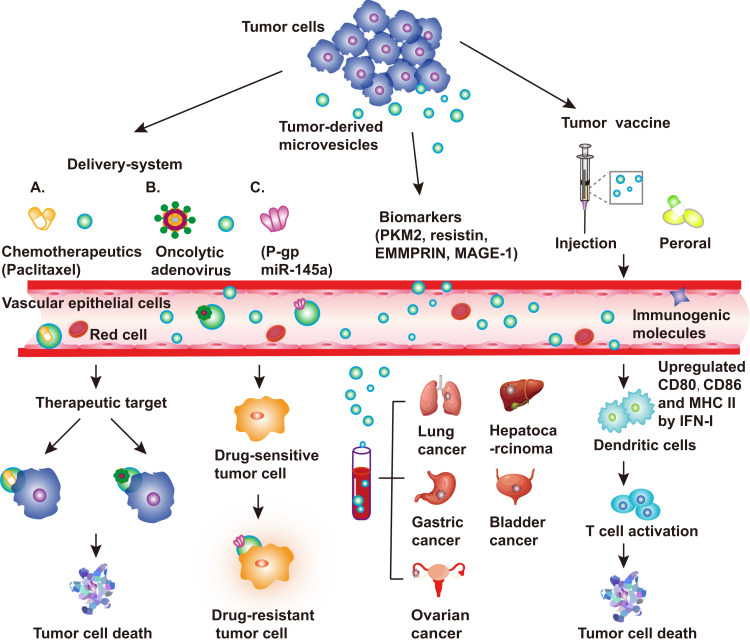Figure 3.
Applications of tumor-derived microvesicles (TMVs). TMVs are released by tumor cells in the tumor microenvironment (TME). TMVs can be used as a delivery system, for instance, carrying chemotherapeutic drugs (paclitaxel), oncolytic adenovirus, P-gp, or miR-145a to the target area for cancer treatment. TMVs carrying P-gp reverse the drug resistance of tumor cells. Owing to their stability, TMVs can provide diagnostic information when extracted from body fluids of cancer patients, including patients with lung cancer, hepatocarcinoma, gastric cancer, and ovarian cancer. Examples of markers include PKM2, resistin, EMMPRIN, and MAGE-1. TMVs can carry a variety of immunogenic molecules, including proteins, nucleic acids, and polysaccharides. TMVs can transfer antigens or innate signals (DNA or others) to dendritic cells (DC); then, the armed DCs activate tumor-specific T cells, resulting in the lysis of tumor cells.
Abbreviations: PKM2, pyruvate kinase M2; EMMPRIN, extracellular matrix metalloproteinase inducer.

